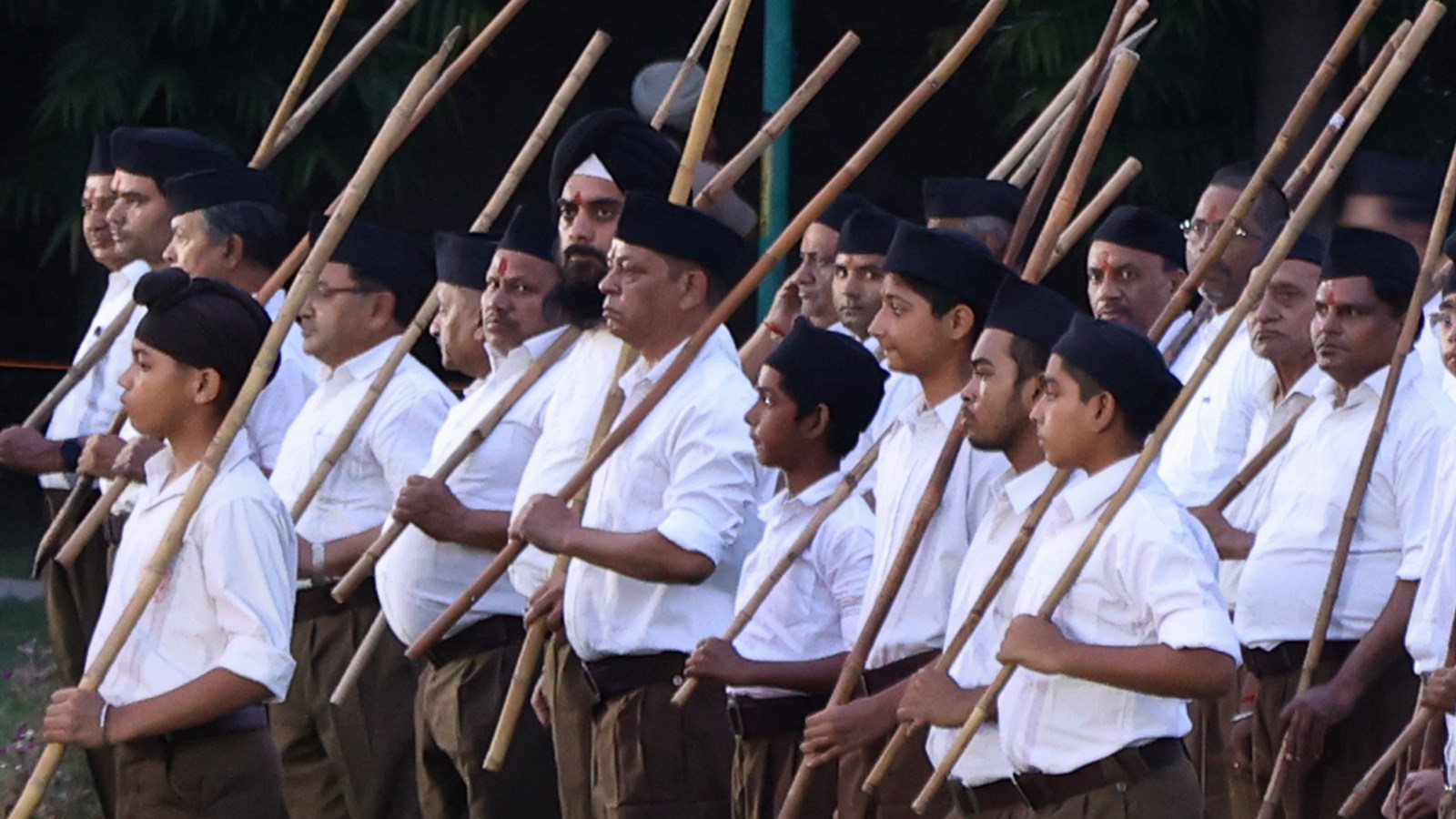Pawan Khera’s article, ‘RSS smoke and mirrors’ (IE, July 31), combines half-truths and twisted facts. The decision to lift the ban on government employees’ participation in RSS activities is one of the several steps the Modi government has taken to decolonise India since it assumed office in 2014.
The British government of the Central Provinces initiated the first move against the RSS in 1930 and again in 1932 when it issued a circular prohibiting government servants from joining the organisation. The then-colonial power, however, backtracked following huge public protests by various sections of civil society, including Congress members.
The aliens departed on August 15, 1947, and were unfortunately replaced by the alienated. The Nehru government used the unfortunate assassination of Gandhiji (January 30, 1948) to perpetuate the colonial prejudice against the RSS. Not only was the Sangh banned, its leaders were arrested, workers persecuted, and there were reports of violence against suspected RSS sympathisers and Maharashtrian Brahmins.
In his autobiography, ‘Living an Era (Vol.2): The Nehru Epoch, From Democracy to Monocracy’, veteran Congress leader and a noted freedom fighter (twice Congress chief minister of Madhya Pradesh) D P Mishra has given a vivid description of this sordid episode of Indian history. According to Mishra, but for prompt police action, the entire RSS leadership, including the then RSS chief M S Golwalkar, would have been in grave danger. He writes, “The Nagpur incidents were not isolated as more harrowing scenes of violence against Brahmans were enacted in many parts of Marathi-speaking areas… the troublemakers were mostly congressmen.”
While Khera has quoted Sardar Patel multiple times, surprisingly, he hasn’t mentioned Nehru once. Nehru hated RSS because he abhorred India’s Hindu traditions. He was honed in Marxist lore, which attributed all of India’s ills to its Hindu character.
Speaking at a seminar on March 17, 1959, Nehru said, “Some of the temples in the South, however, repel me… I just can’t stand them. Why? I do not know. I cannot explain that, but they are oppressive; they suppress my spirit. They do not allow me to rise; they keep me down…”
Nehru’s distrust of the RSS sadly ended only a little before he breathed his last in May 1964. When China invaded India in 1962, the Communists tried to sabotage Indian war efforts by giving strike calls. In contrast, the RSS stood by the government, organised blood donation camps, reached supplies to the army at the borders and helped to nab anti-national elements.
India’s humiliating defeat at the hands of the Chinese and the sterling role of the RSS during the war helped Nehru understand the RSS’s mettle. The 1963 Republic Day parade included a proud contingent of RSS volunteers, smartly dressed in their uniforms of white shirts and khaki half pants.
Unlike what Khera would have us believe, Sardar Patel considered the RSS a patriotic organisation. On January 6, 1948, he said in Lucknow, “In the Congress, those who are in power feel that by virtue of authority they will be able to arrest the RSS. By ‘Danda’ you cannot suppress an organization. Moreover, ‘Danda’ is meant for thieves and ‘Dakus’. The using of ‘Danda’ will not help much. After all, RSS men are not thieves and dacoits. They are patriots. They love their country. Only their trend of thought is divergent. They have to be won over by Congressmen with love.” Is Rahul Gandhi listening?
Khera alleges “grants and appointments going to people and organisations belonging to or close to the RSS.” What about the Rajiv Gandhi Foundation (RGF)? Apart from accepting funds from the Chinese government, the organisation has received donations from the governments of Ireland, Luxembourg, and the European Union. The RGF has also received enormous contributions from multiple government institutions during the UPA rule, including the Prime Minister’s National Relief Fund. Is it Khare’s case that only enterprises connected with the Nehru-Gandhi clan should have access to public funds?
Khare is right; the RSS had no written constitution till 1948. But that didn’t make it either “secretive” or undemocratic. The United Kingdom has no written constitution, but it is a vibrant democracy. The Congress has a constitution but a dysfunctional inner-party democracy. It functions like a monarchy where leaders are chosen by dynastic succession.
In this part of the world, India is the only functioning democracy. Its pluralistic values and catholic ethos are steeped deep in the liberal traditions of Hinduism that celebrate diversity. Political opponents are rivals and not enemies, as is the wont with several ideologies and creeds, where any dissent is blasphemy, punishable with death.
To appreciate this aspect of Indian democracy, one should read what Atal Bihari Vajpayee said in Parliament following Nehru’s death. Vajpayee said, “…a dream has been shattered, a song silenced, a flame has vanished in the infinite… Bharat Mata is stricken with grief today — she has lost her favourite prince.”
In 1966, after V D Savarkar’s demise, Indira Gandhi paid tribute to him in these words, “It removes from our midst a great figure of contemporary India. His name was a byword for daring and patriotism. Mr Savarkar was cast in the mould of a classical revolutionary, and countless people drew inspiration from him.” In 1970, Indira Gandhi also issued a commemorative stamp in Savarkar’s honour.
On ‘Guruji’ Golwalkar’s death in 1973, Indira Gandhi said in Parliament, “Another eminent personality, who was not a Member of this House, was Shri Golwalkar. He was a scholar and a man of forceful beliefs… We mourn the departure of distinguished sons of the country.”
However, under Rahul Gandhi, it is a different Congress, heavily borrowing from the Left lexicon, communist tactics and woke tool-kits. Khare’s piece is in line with the changed ideological profile of his party.
Balbir Punj is the author of the recently published Tryst with Ayodhya: Decolonisation of India



